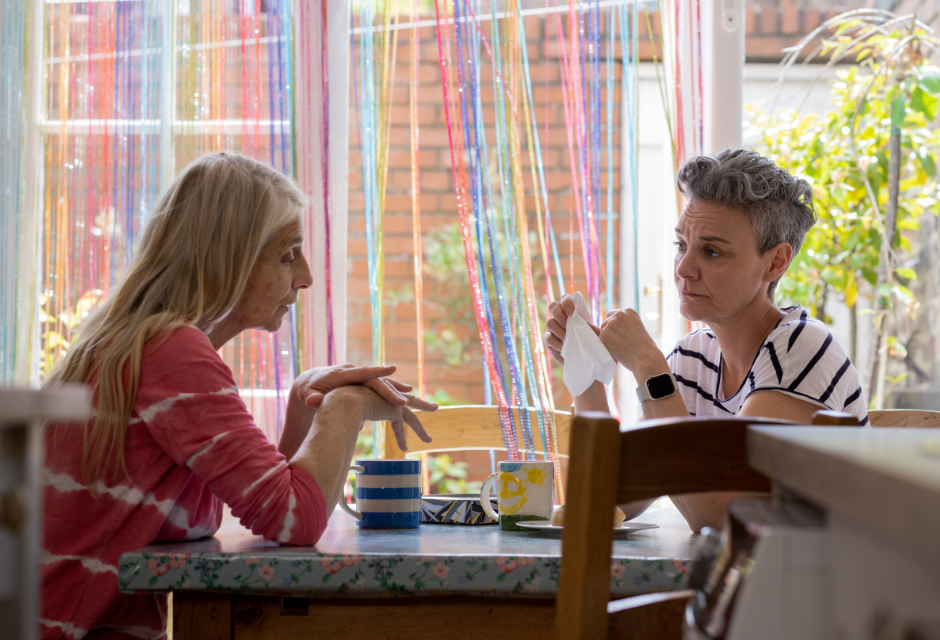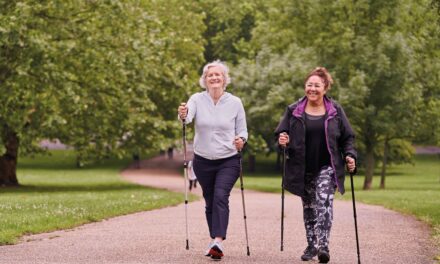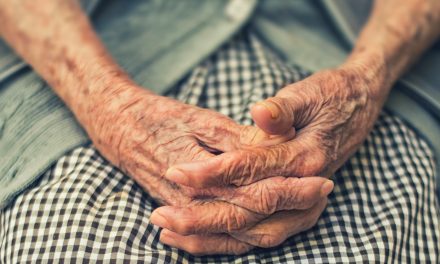An estimated 13 million women, and people who were registered female at birth who are trans or non-binary, are experiencing menopause. So whether we’re a partner, family member, friend, medical professional, or colleague, it’s vital that we understand more about this change in hormones and how to be supportive.
What is menopause?
Menopause is when the hormones oestrogen and progesterone start to decrease and periods stop, this usually occurs between 45 – 55 years of age. During the initial stages, the perimenopause, when hormones fluctuate, a variety of symptoms can be experienced, including lighter or heavier periods, hot flashes, insomnia, muscle aches, brain fog, loss of libido, and vaginal dryness.
When periods have stopped for more than a year, menopause has officially been reached. The transition can last from seven to 14 years.
Not everyone experiences symptoms, for some symptoms may be mild while around 25% endure severe difficulties that have a real impact on family, sexual relationships and work.
Peri-menopause can come as a surprise
The changes can be a surprise and some do not consider perimenopause as being the cause of night sweats, loss of interest in sex, increased anxiety or other symptoms.
Making lifestyle changes, improving diet, exercise and sleep routines, and reducing alcohol, can often help. Research has revealed that many are reluctant to seek help from their GP even when symptoms have a debilitating impact on day-to-day life.
A GP can help advise on lifestyle changes, Hormone Replacement Therapy (HRT) and can refer to one of almost 100 menopause clinics in the UK. However, there is no compulsory menopause training for GPs so if you hit a brick wall, it’s a good idea to ask for another GP to get the help you need.
Menopause is now a priority
The Women’s Health Strategy for England has now prioritised menopause. The strategy includes making HRT more easily available and cheaper through a prepayment certificate. There’s a recommendation for oestrogen products, used to treat vaginal atrophy, to be available at a pharmacy without a prescription. New guidelines from NICE are also being updated to reflect the new evidence and this is expected soon.
Some experts believe that stigma or embarrassment prohibits the take up of HRT with about 10% of menopausal people being prescribed it. Fears about side effects, including a trial which found an increase in breast cancer among HRT users were found to be faulty after a new analysis of the research. The increased risk for a healthy person taking HRT is four in a thousand. In fact, specialists now believe that HRT not only relieves symptoms but helps to protect against the number one killer of women in the UK, Alzheimer’s.
Struggling with menopausal symptoms?
Check out the latest information and resources below and make an appointment with your GP.
- Women’s Health Concern
- Menopause Matters
- Daisy Network
- Menopause Café
- Queermenopause
- Perimenopause and menopause – SHIFT
Written by Elaine Weddle




